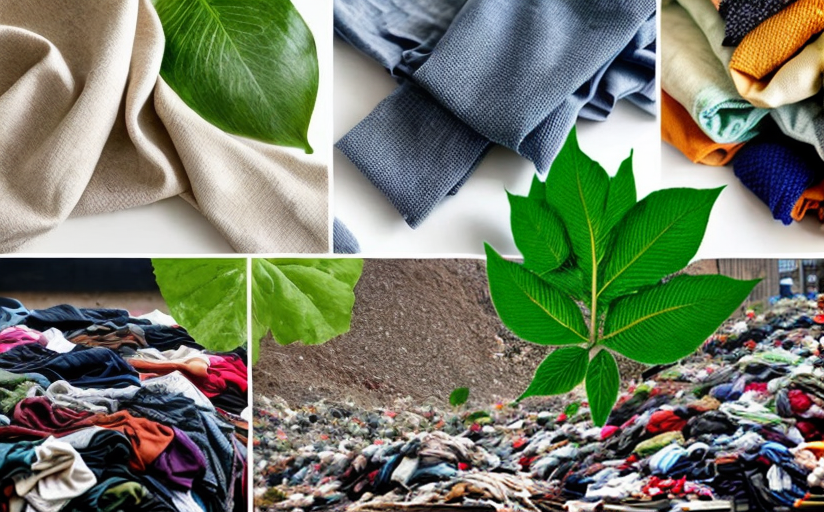Ecological Impacts of Fast Fashion
Fast fashion is a modern production trend that focuses on low-cost, high-volume clothing. This industry thrives on constant demand for the latest trends, resulting in quick production cycles and a significant impact on the environment. The effects range from resource depletion due to overconsumption of raw materials, pollution, and climate change due to greenhouse gas emissions.
Pollution and Climate Change
The fast fashion industry is one of the largest polluters worldwide. It contributes immensely to water pollution, with toxic chemicals used in dyeing and tanning processes often released into the environment untreated. This pollution of aquatic ecosystems disrupts the biodiversity balance. Additionally, the energy-intensive nature of fast fashion contributes to greenhouse gas emissions, escalating climate change.
Resource Depletion
Fast fashion is often linked to reckless consumption of natural resources. This not only involves overuse of water and land for cotton farming but also the extraction of fossil fuels for synthetic materials like polyester, all contributing to resource depletion.
Sustainable Alternatives to Fast Fashion
Recycling and Upcycling
Recycling materials and upcycling clothing can significantly reduce the amount of waste produced by the fashion industry. This reduces pressure on landfills and promotes a circular economy where waste is minimized. However, these practices are not without challenges. More infrastructure is necessary to facilitate large-scale recycling, and consumer attitudes towards recycled or upcycled clothing need to shift.
Sustainable Fabrics and Ethical Brands
Sustainable fabrics like organic cotton, hemp, and bamboo have a lesser environmental impact than traditional materials. Moreover, ethically conscious brands prioritize fair labor conditions and sustainable manufacturing processes, posing another alternative to fast fashion. However, these brands often struggle with higher production costs, which could translate to higher retail prices, potentially limiting their adoption by price-sensitive consumers.
Beyond Sustainable Production: Consumer Attitudes and Regulations
Shifting the fashion industry towards sustainability involves more than just production changes. Consumer attitudes and behaviors play a pivotal role in driving demand for sustainable fashion. As such, individuals can contribute to this shift by prioritizing quality over quantity, seeking out ethical brands, and embracing recycled fashion. On the regulatory side, government rules can support sustainable practices in the industry, for example, by incentivizing green practices or by implementing stricter pollution control measures.
Conclusion
The journey towards sustainable fashion is a challenging one, but not without its rewards. Both the long-term well-being of our environment and the sustainability of the fashion industry itself depend on this transition. As consumers, producers, and regulators, it's a shared responsibility to challenge the status quo and set a new, sustainable course for fashion.

















Comments
Leave a Comment